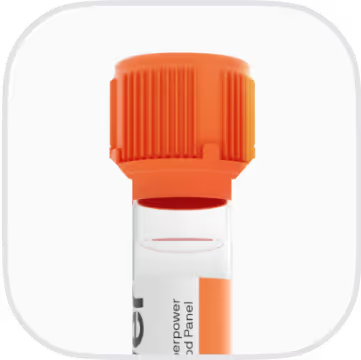What are Cushing’s Syndrome biomarkers
Cushing’s Syndrome biomarkers are the body’s chemical fingerprints of chronic cortisol overload and the signals that drive it. The centerpiece is cortisol (hydrocortisone), made by the adrenal cortex, which mobilizes fuel, supports blood pressure, and tempers immune activity; in Cushing’s it stays inappropriately high and loses its normal day-night rhythm across the day. Its upstream controller is ACTH (adrenocorticotropic hormone) from the pituitary, which tells the adrenals how much cortisol to make; interpreting ACTH alongside cortisol shows whether the system is being pushed from above or from the adrenal itself. Related adrenal steroids and cortisol’s downstream footprints on metabolism and salt balance (androgen precursors, glucose handling, and potassium regulation) add corroborating signals about how far cortisol’s effects have spread. Taken together, these measurements provide a functional snapshot of the HPA axis (hypothalamic-pituitary-adrenal axis): they confirm sustained cortisol exposure, reveal disruption of normal hormonal rhythm, gauge impact on tissues, and point clinicians toward the likely source of excess hormone to guide next diagnostic steps and treatment.
Why is blood testing for Cushing’s Syndrome important?
- Spot cortisol overproduction and adrenal signals that point to Cushing’s syndrome.
- Flag hormone imbalance driving weight gain, high blood pressure, diabetes, and easy bruising.
- Differentiate pituitary versus adrenal causes using DHEAS patterns alongside cortisol levels.
- Clarify unexplained irregular periods, low libido, or acne from pituitary-driven androgen excess.
- Guide next steps: confirm with late-night salivary cortisol or dexamethasone suppression.
- Track treatment response and catch recurrence after surgery, radiation, or medical therapy.
- Protect fertility and pregnancy planning by identifying hormone excess that risks complications.
- Interpret results best with symptoms and confirmatory tests like pituitary hormone and salivary cortisol.
What insights will I get?
Cushing’s Syndrome blood testing is essential for understanding how your body manages stress, energy, and metabolism at a systems level. This syndrome results from prolonged exposure to high levels of cortisol, a hormone that affects nearly every organ system—including cardiovascular health, immune function, cognition, and reproductive balance. At Superpower, we focus on two key biomarkers: Cortisol and DHEAS.
Cortisol is the primary stress hormone produced by the adrenal glands. It helps regulate blood sugar, blood pressure, and the body’s response to stress. In Cushing’s Syndrome, cortisol levels are abnormally high, which can disrupt normal metabolic processes and lead to symptoms like weight gain, muscle weakness, and high blood pressure. DHEAS (dehydroepiandrosterone sulfate) is another hormone made by the adrenal glands. It serves as a counterbalance to cortisol and is involved in the production of sex hormones. In Cushing’s Syndrome, DHEAS levels may be low, normal, or sometimes elevated, depending on the underlying cause.
Healthy cortisol and DHEAS levels are crucial for maintaining stability across multiple body systems. When cortisol is persistently elevated, it can impair immune defense, weaken bones, and disturb mood and memory. DHEAS helps support resilience and hormonal balance, so changes in its levels can signal shifts in adrenal function and overall system health.
Interpretation of these biomarkers depends on several factors. Age, pregnancy, acute illness, and certain medications (like steroids or oral contraceptives) can all influence cortisol and DHEAS levels. Laboratory methods and timing of sample collection also affect results, so context is key for accurate assessment.







.avif)



.svg)





.svg)


.svg)


.svg)

.avif)
.svg)










.avif)
.avif)
.avif)


.avif)
.avif)




.svg)




.avif)


